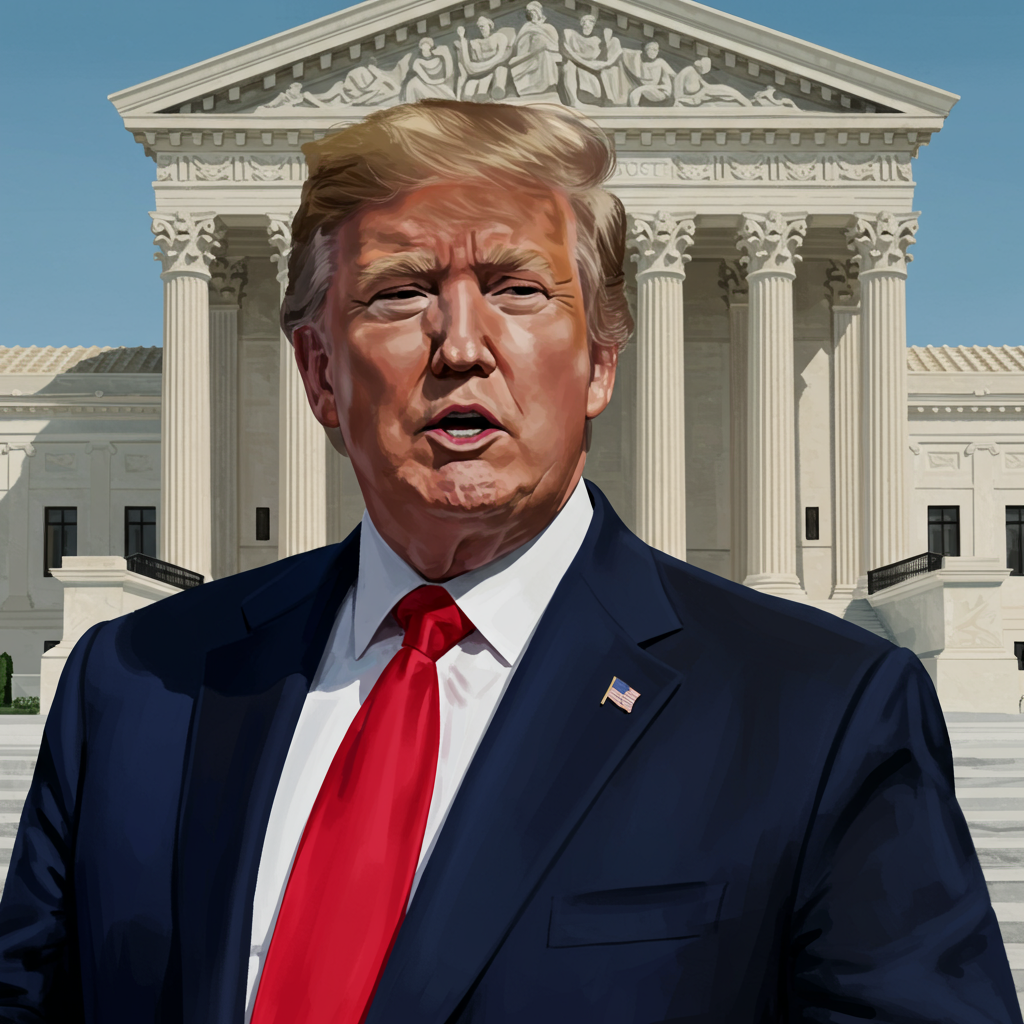Supreme Court Limits Sweeping Orders Against Trump’s Birthright Citizenship Plan
In a significant procedural victory for the Trump administration, the U.S. Supreme Court on Friday, June 27, 2025, sharply curtailed the power of federal judges to issue sweeping, nationwide injunctions that had blocked President Trump’s executive order seeking to end automatic birthright citizenship.
The 6-3 ruling, largely along ideological lines, sends the case back to lower courts, directing judges to narrow the scope of their injunctions. This means that while the controversial birthright citizenship policy remains blocked for the specific states, groups, and individuals who filed lawsuits, it is no longer frozen nationwide for everyone else. The administration can now potentially move forward with implementing the policy in states not covered by the narrowed injunctions and against those not party to the original lawsuits.
The Supreme Court stated that the executive order could technically go into effect in 30 days, although it remains paused where legal challenges are ongoing, including in states like Maryland, Massachusetts, and Washington state, whose cases were before the Supreme Court, and separately in New Hampshire.
The Ruling Explained: Limiting Judicial Reach
The high court’s decision did not address the fundamental legal question of whether President Trump’s plan to end automatic birthright citizenship is constitutional. Instead, it focused solely on the authority of lower courts to issue universal or nationwide injunctions that prevent a federal policy from taking effect across the entire country, regardless of who sued.
Writing for the conservative majority, Justice Amy Coney Barrett indicated that while courts have the power to rule executive actions unlawful, this authority is not unlimited. She argued that injunctions should generally provide relief only to the specific parties who brought the case, suggesting that nationwide orders often exceed a court’s necessary power to resolve the dispute before it. The ruling directed lower courts to act “expeditiously” to determine the appropriate, narrower scope for their injunctions.
This decision is part of a broader debate over the increasing use of nationwide injunctions by federal judges, a practice that has escalated in recent decades and has been criticized by administrations of both parties, though particularly targeted by the Trump administration. Proponents argue these injunctions are a vital check on executive power and ensure uniform law application.
The Birthright Citizenship Debate
At the heart of the original legal challenges lies President Trump’s executive order, signed on his first day back in office, which directs federal agencies to deny U.S. citizenship to children born in the United States unless at least one parent is a U.S. citizen or a lawful permanent resident (green card holder).
This policy directly challenges the long-held and widely accepted interpretation of the 14th Amendment to the U.S. Constitution. Ratified after the Civil War, the 14th Amendment’s citizenship clause states, “All persons born or naturalized in the United States, and subject to the jurisdiction thereof, are citizens of the United States.” Legal experts across the ideological spectrum have long agreed that this confers automatic citizenship to nearly anyone born on U.S. soil, with the only historical exception being children of foreign diplomats. The 1898 Supreme Court case United States v. Wong Kim Ark is a foundational ruling supporting this principle.
The Trump administration argues that the phrase “subject to the jurisdiction thereof” excludes children born to immigrants in the country illegally or those on temporary visas, asserting this aligns with the 14th Amendment’s original intent to primarily guarantee citizenship to children of former slaves. Critics counter that this interpretation is a distortion of established law and the Wong Kim Ark precedent, and that the President lacks the authority to unilaterally alter the meaning of a constitutional amendment.
Proponents of ending birthright citizenship often argue it acts as a “magnet” for unauthorized immigration and encourages “birth tourism.” Opponents warn that eliminating it would create a significant “permanent subclass” of people born and raised in the U.S. but denied fundamental rights. Estimates suggest Trump’s proposal could affect over 150,000 newborns annually.
What This Means and What’s Next
While President Trump hailed the ruling as a “GIANT WIN” and a victory for the separation of powers, dissenting liberal justices strongly condemned the decision. Justice Sonia Sotomayor called it a “travesty for the rule of law” and an “open invitation to bypass the constitution,” warning it would hamstring federal courts’ ability to provide effective remedies. Justice Ketanji Brown Jackson echoed this, describing the decision as an “existential threat” because it allows the Executive Branch to potentially violate the Constitution against individuals who haven’t yet filed a lawsuit.
Despite the Supreme Court narrowing the existing injunctions, the legal battle over the birthright citizenship policy itself is far from over. Lawyers for the original plaintiffs vowed to continue their fight, seeking to maintain injunctions that are narrower in scope but still apply to specific groups or states. The ruling also seemingly leaves the door open for new class action lawsuits or individual challenges. States that challenged the plan remain confident it will ultimately never take effect.
The Supreme Court’s decision marks a significant development in the procedural conflict between the executive and judicial branches over restraining federal actions, but the underlying legal question of birthright citizenship’s scope under the 14th Amendment will continue to be litigated in lower courts.



